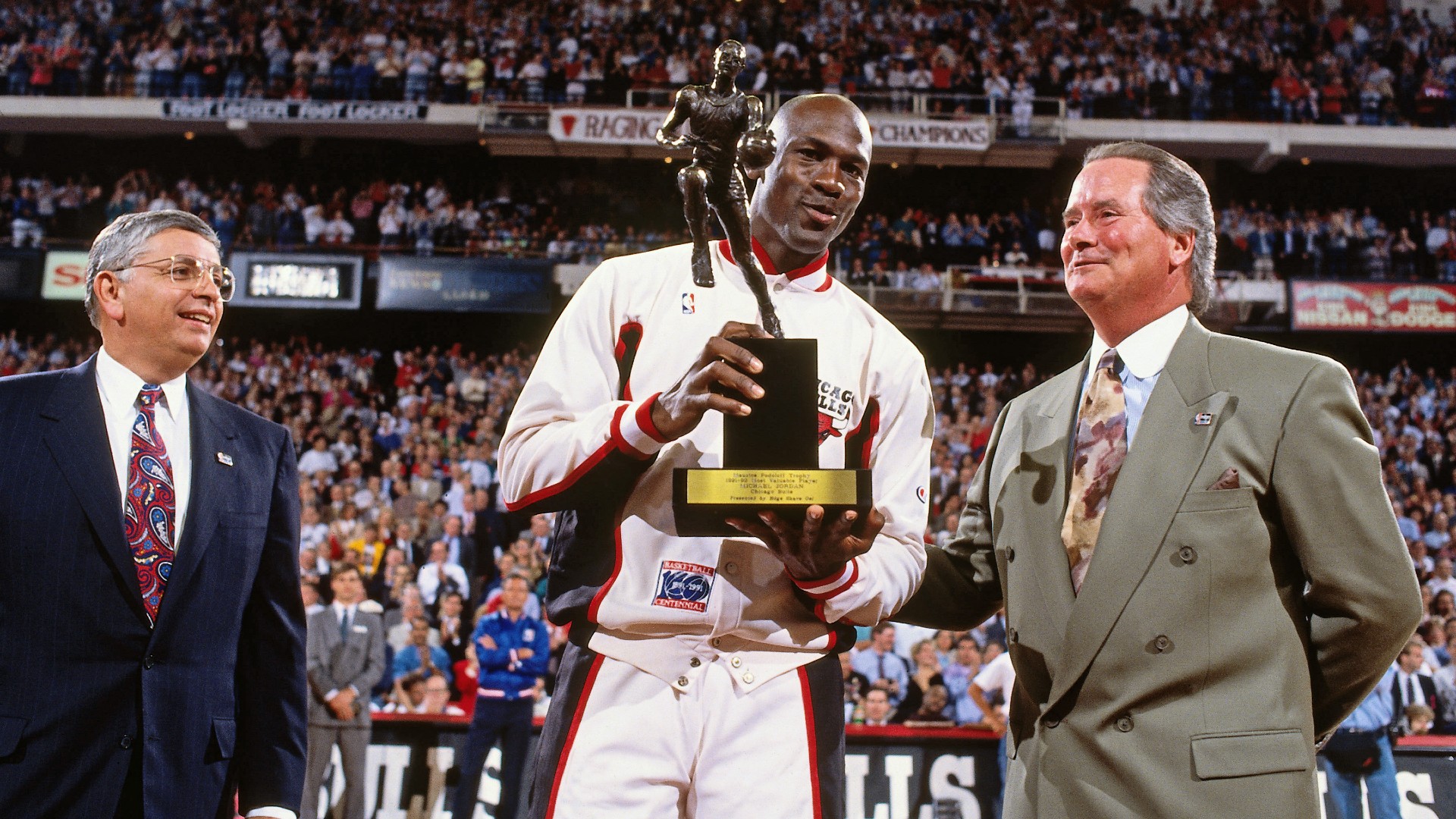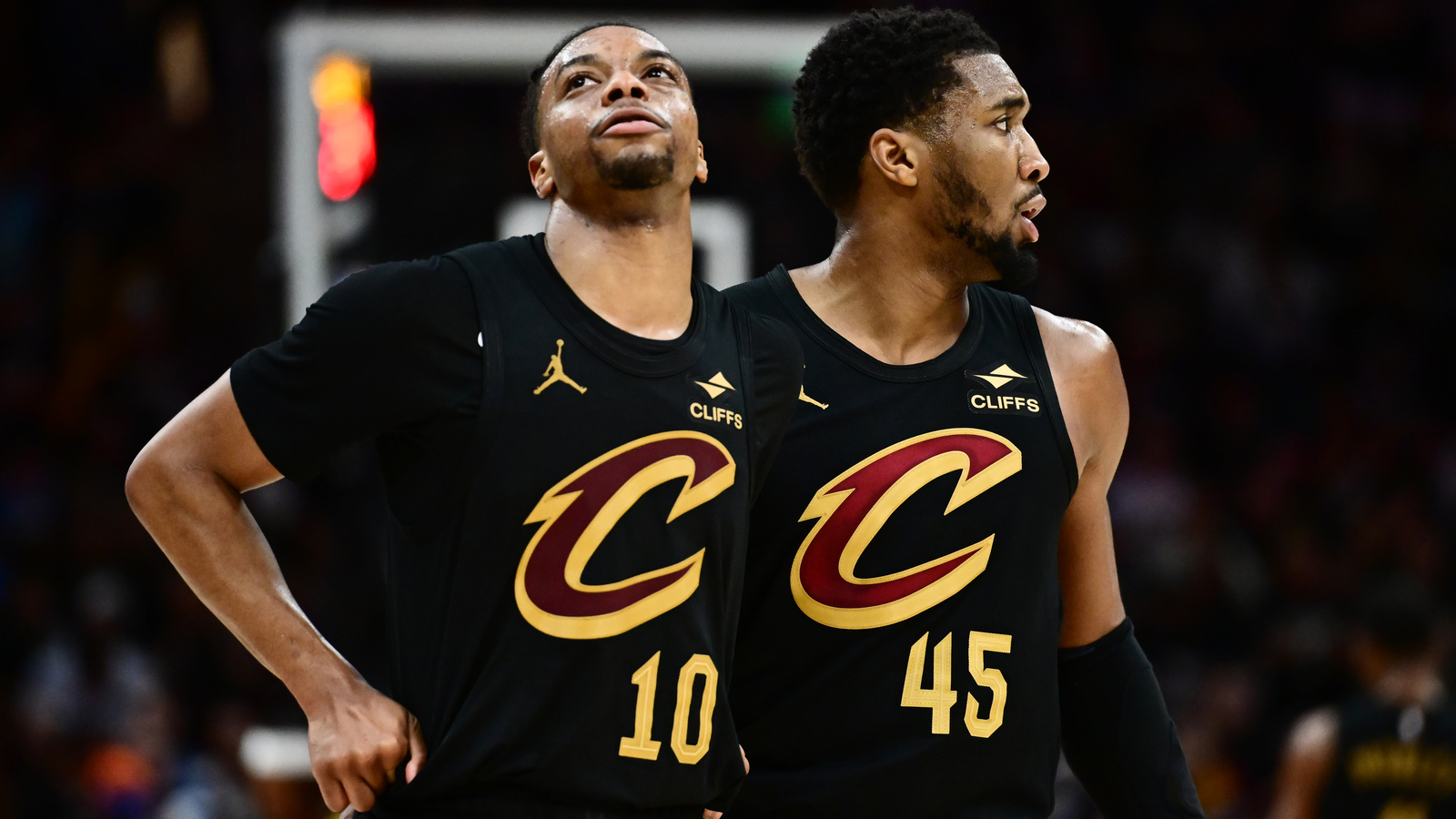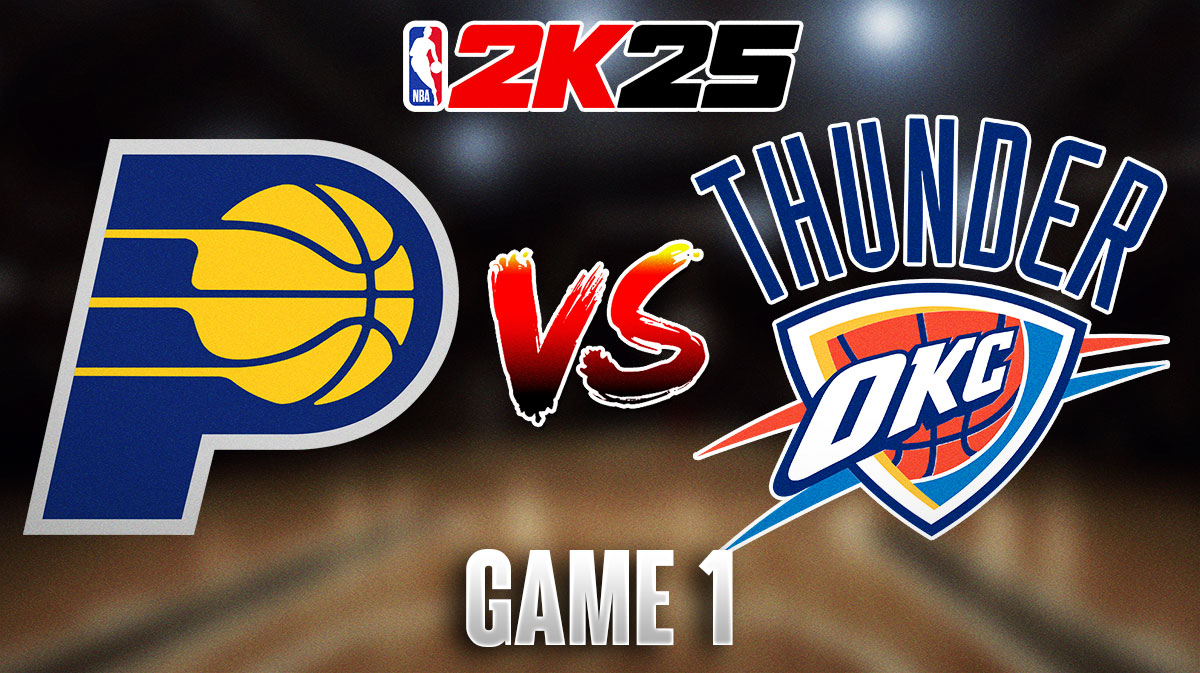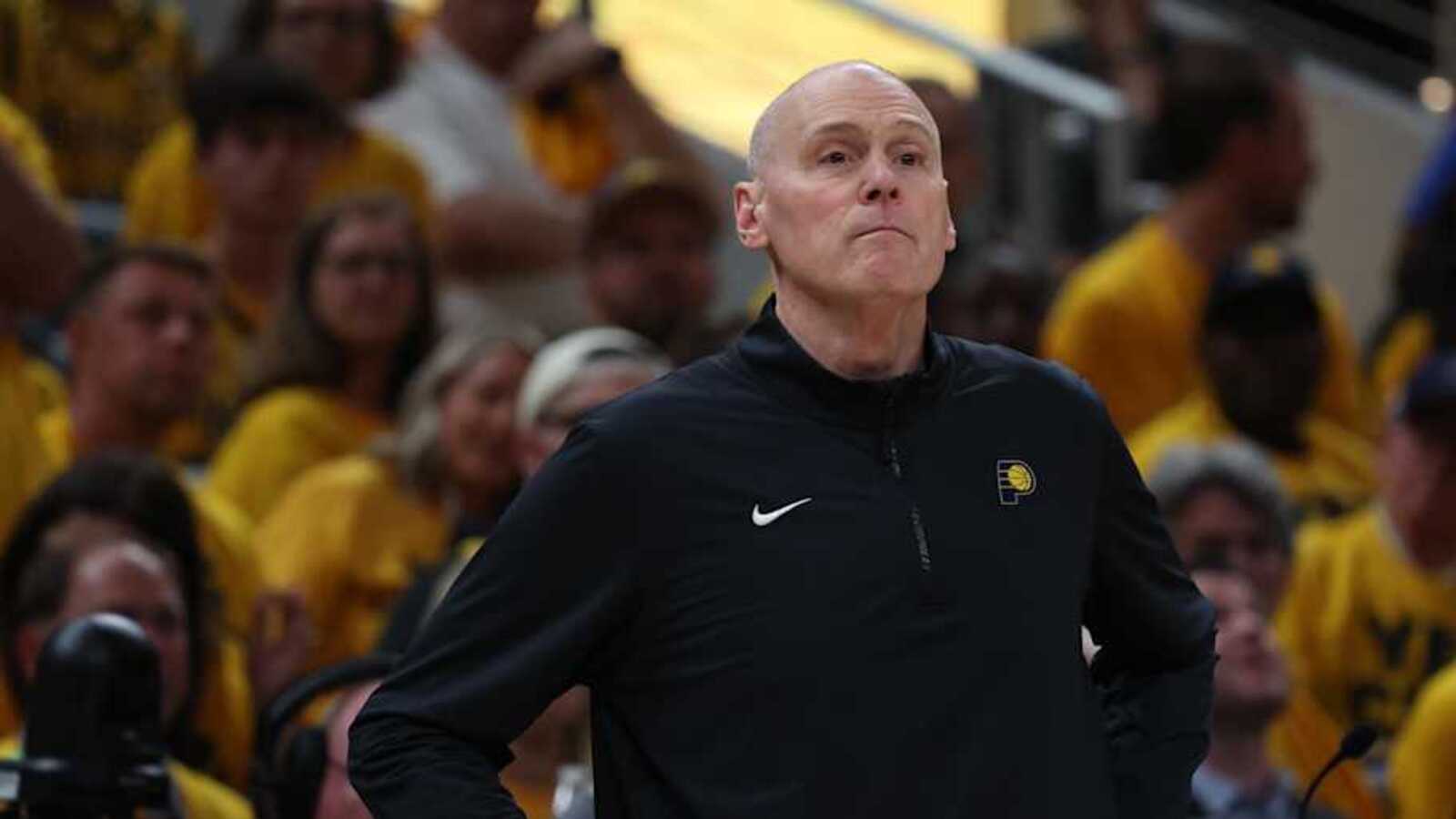Players who have won both Kia MVP and NBA championship in the same season

Michael Jordan won both the NBA MVP and the championship in 4 of his 6 title-winning seasons.
With the NBA Finals set to tip off, 2025 Kia NBA MVP Shai Gilgeous-Alexander has a chance to accomplish something only a few of the greatest players to ever step on a basketball court have. If he can also win an NBA Championship this year, he’ll join a list of just 12 NBA players to win both trophies in the same season.
This feat has been accomplished 23 times in total across 10 franchises (listed from the most recent to the earliest).
Curry is a two-time Kia MVP and four-time NBA Champion, but only once did he win both in the same season. The 2014-15 campaign saw him earn his first of back-to-back Most Valuable Player awards and hoist his first Larry O’Brien trophy. The Warriors were able to eliminate the Cavaliers in six games of the NBA Finals to cap off a season that saw Curry average 23.8 points per game while shooting 48.7% from the floor and 44.3% from beyond the arc.
In his 10th NBA season, LeBron claimed his fourth MVP award and secured his second straight NBA title after leading the Heat past the Spurs in seven games. He also took home his second Finals MVP, averaging 26.8 points, 8.0 rebounds, and 7.3 assists, while leading the league in field goals made per game (10.1).
The year prior, James earned his third MVP and captured his first NBA championship. He helped the Heat defeat the Thunder in five games, picking up the first of his four Finals MVPs. He averaged 27.1 points, 7.9 rebounds, and 6.2 assists, once again topping the NBA in field goals made per game (10.0).
Duncan won his second MVP and second NBA championship in 2003, the only time he earned both in the same season. “The Big Fundamental” led the Spurs to a six-game victory over the Nets and was named Finals MVP. He averaged 23.3 points and a career-best 12.9 rebounds per game.
O’Neal’s Hall of Fame career featured four championships and one MVP award, both achieved in the 1999-00 season. The Lakers defeated the Pacers in six games, with Shaq winning Finals MVP after averaging 38.0 points in the series. During the regular season, he led the league in points per game (29.7) and field-goal percentage (57.4%).
Jordan earned his fifth MVP and last championship in 1998, defeating the Jazz in six games. He won Finals MVP and led the league in scoring for the 10th and final time, averaging 28.7 points per game.
Jordan won his fourth MVP while leading the league in scoring with 30.4 points per game. The Bulls set an NBA record with 72 wins before defeating the Sonics in six games to claim the title.
Olajuwon won his only MVP and second consecutive championship in 1994. “The Dream” averaged 27.3 points, 11.9 rebounds and 3.7 blocks per game, earning Defensive Player of the Year honors. The Rockets defeated the Knicks in seven games.
Jordan won his third MVP and second Finals MVP in 1992 as the Bulls defeated the Trail Blazers in six games. He led the league in scoring for the sixth straight season, averaging 30.1 points.
Jordan earned his second MVP and first championship in 1991, leading the Bulls past the Lakers in five games. He again led the league in scoring with 31.5 points per game.
Magic won both his third MVP and fourth championship in the 1986-87 season. He led the league with 12.2 assists per game and averaged 23.9 points as the Lakers beat the Celtics in six games.
Bird won his third MVP and second Finals MVP while leading the Celtics to a six-game victory over the Rockets. He averaged 25.8 points per game during the regular season and led and the league by averaging one made 3-pointer per game.
Bird’s first MVP and Finals MVP came in 1984, when the Celtics defeated the Lakers in seven games. He averaged 24.2 points, 10.1 rebounds and 6.6 assists during the regular season.
Malone won both his MVP and third championship in 1983. He led the league with 17.6 rebounds per game and scored 24.8 points. The Sixers swept the Lakers in the Finals.
Kareem won his second MVP and fifth championship with the Lakers in 1980. He averaged 24.8 points, 10.8 rebounds, and led the league with 3.4 blocks per game as the Lakers defeated the 76ers in six games.
In his second NBA season, still known as Lew Alcindor, Kareem won MVP and his first championship. He averaged 31.7 points and 16.0 rebounds while leading the Bucks to a four-game sweep of the Bullets. He also earned Finals MVP honors.
Reed won his only MVP and first championship in 1970, averaging 21.7 points and 13.9 rebounds. His legendary return in Game 7 of the Finals helped the Knicks defeat the Lakers.
Chamberlain’s third MVP season featured 24.2 points and an astounding 24.2 rebounds per game. The 76ers won the title in six games over the Warriors, with Wilt averaging 28.5 rebounds in the Finals.
Russell won both MVP and championship for the final time in 1965, averaging 14.1 points and leading the league with 24.1 rebounds. The Celtics defeated the Lakers in five games.
In 1963, Russell earned his third MVP and sixth championship, averaging 16.8 points and 23.6 rebounds as the Celtics beat the Lakers in six games.
Russell’s third straight MVP season saw him average 18.9 points and 23.6 rebounds. The Celtics defeated the Lakers in seven games to win their fourth consecutive title.
Russell’s second MVP season included averages of 16.9 points and 23.9 rebounds. The Celtics won a seven-game series over the St. Louis Hawks.
Cousy won his only MVP and first championship in 1957, leading the Celtics past the Hawks in seven games. He averaged 20.6 points, 4.8 rebounds, and led the league with 7.5 assists per game.










